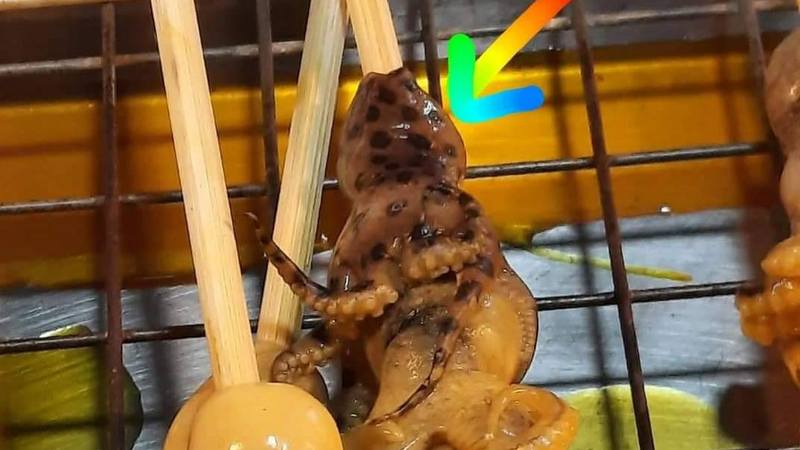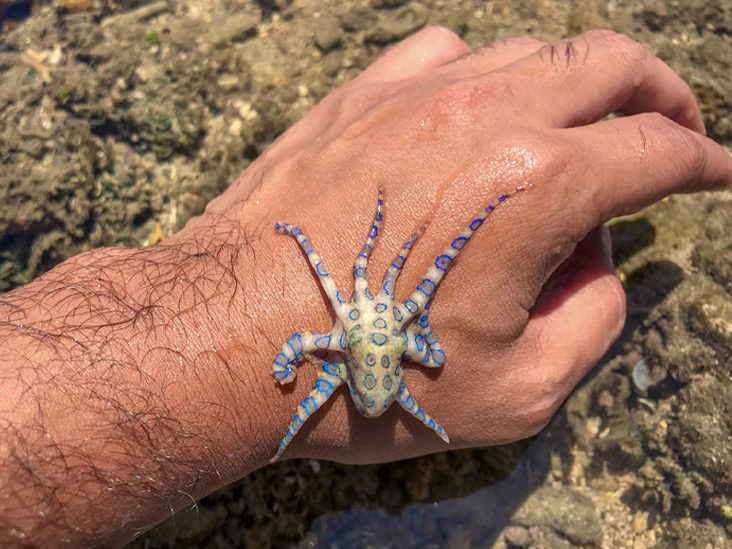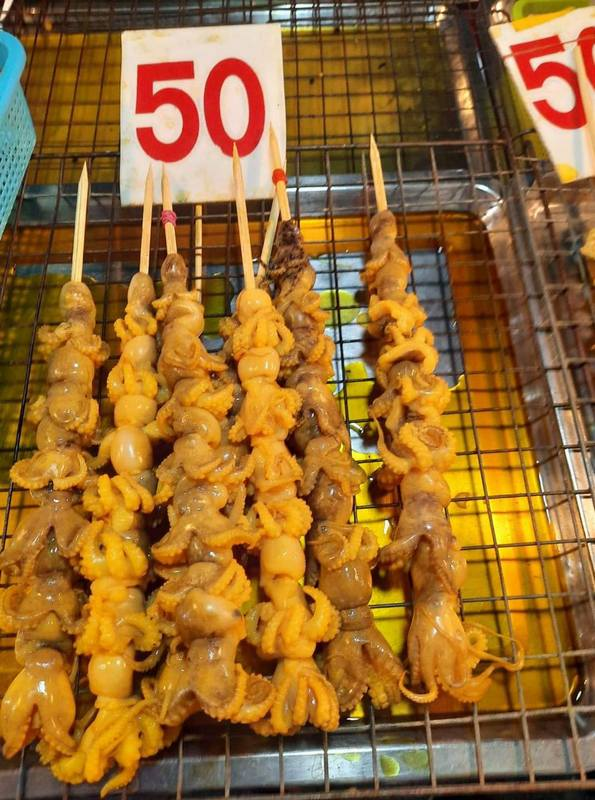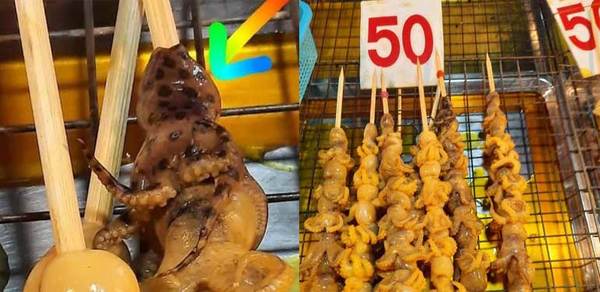Marine life experts in Thailand have issued the public a stern warning not to eat any blue-ringed octopus as one creature of its kind contains enough venom to kill 26 people within minutes
Thai Department of Marine and Coastal Resources (DMCR) issued the warning after receiving a report from the public over the weekend that the blue-ringed octopus was being sold at a night market, reported Chiang Rai News.
The cooked octopus was being sold alongside other seafood that had been grilled on wooden skewers.

Chief of the Phuket Marine Biological Centre (PMBC) Kongkiat Kittiwatanawong said the octopus is not safe for consumption as its venom cannot be neutralised by cooking.
He told The Phuket News that the venom has heat resistance up to 200ºC and that there is currently no blue-ringed octopus antivenom available.
Merely the size of a golf ball, the octopus’ venom will first block nerve signals within minutes

According to Ocean Conservancy, people who come into contact with it will experience symptoms such as nausea, vision loss or blindness, and loss of senses and motor skills.
Ultimately, the victims may die from a respiratory arrest due to muscle paralysis, as the venom incapacitates the muscles that are needed for breathing.
China Press reported that first aid responders should ensure air enters into the victims’ lungs by performing cardiopulmonary resuscitation (CPR), before rushing them to the hospital to be connected to a ventilator.
If the victims survive the venom, they will recover within 24 hours. Or else, they could suffer from prolonged hypoxia, which can lead to brain death.
Hence, members of the public are advised against consuming the blue-ringed octopus as the chances of surviving the venom are very slim.

It is said that the blue-ringed octopus can be found in seafood markets and restaurants, where the vendors aren’t even aware that they are highly venomous
Based on the photos published on The Phuket News, the grilled blue-ringed octopuses are sold alongside other non-spotted octopuses as if they are the same species.
They are even sold at the same price.

The sea creature can be found in the Gulf of Thailand and the Andaman Sea, while various scuba diving sites noted that the waters in Mabul, Sabah contain the said octopus as well.
If one spots a blue-ringed octopus in the waters, research lecturer at the Excellence Centre for Biodiversity of Peninsular Thailand Dr Jaruwat Nabhitabhata said it is best not to disturb it.
They are not aggressive and will often hide in a crater of rocks or in the seaweed when they encounter a large animal like a person.
However, they will attack by biting once they feel threatened or are taken out of the water. Dr Jaruwat advised the public to not handle the creature with bare hands, keep them as a pet, nor eat them.


